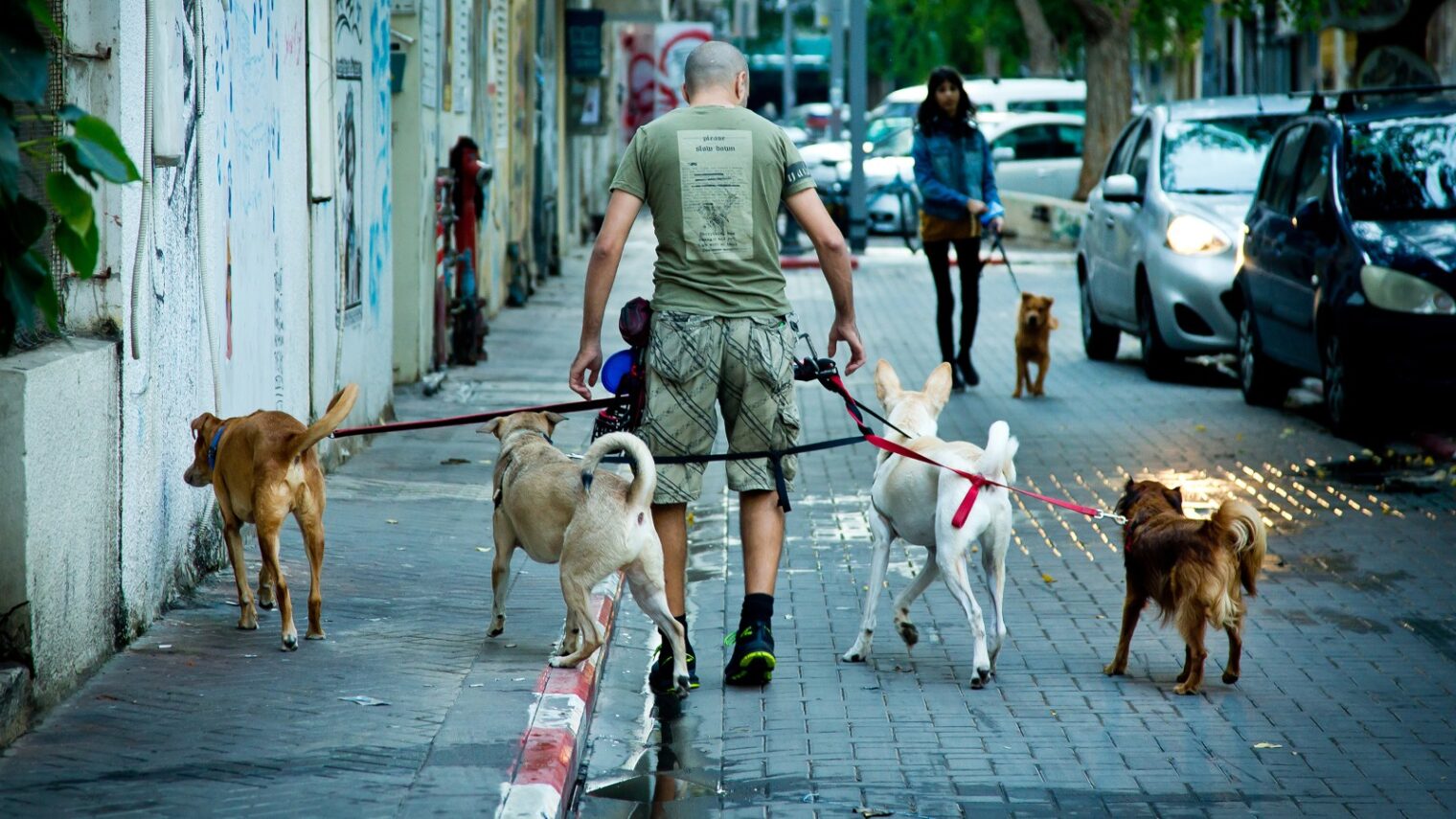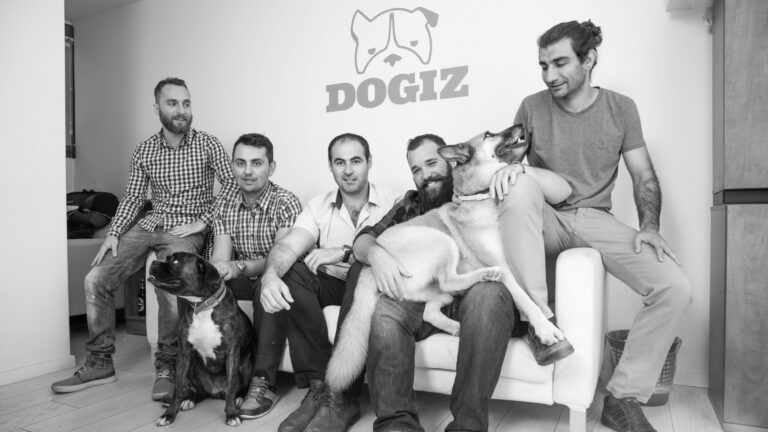Ori Itzchaki is an aspiring journalist. He has interviewed “Wonder Woman” Gal Gadot and Brazilian soccer legend Ronaldo for the magazine of Shavvim, an Israeli organization for people with disabilities.
For now, however, journalism doesn’t pay the bills for this 27-year-old Tel Aviv resident on the high-functioning end of the autism spectrum. Itzchaki tried working at a coffeeshop, with a gardener and other jobs that he found boring.
And then his social worker at the Beit Ekstein organization directed him to Dogiz, a Tel Aviv company with a social-impact project called Walking Together.
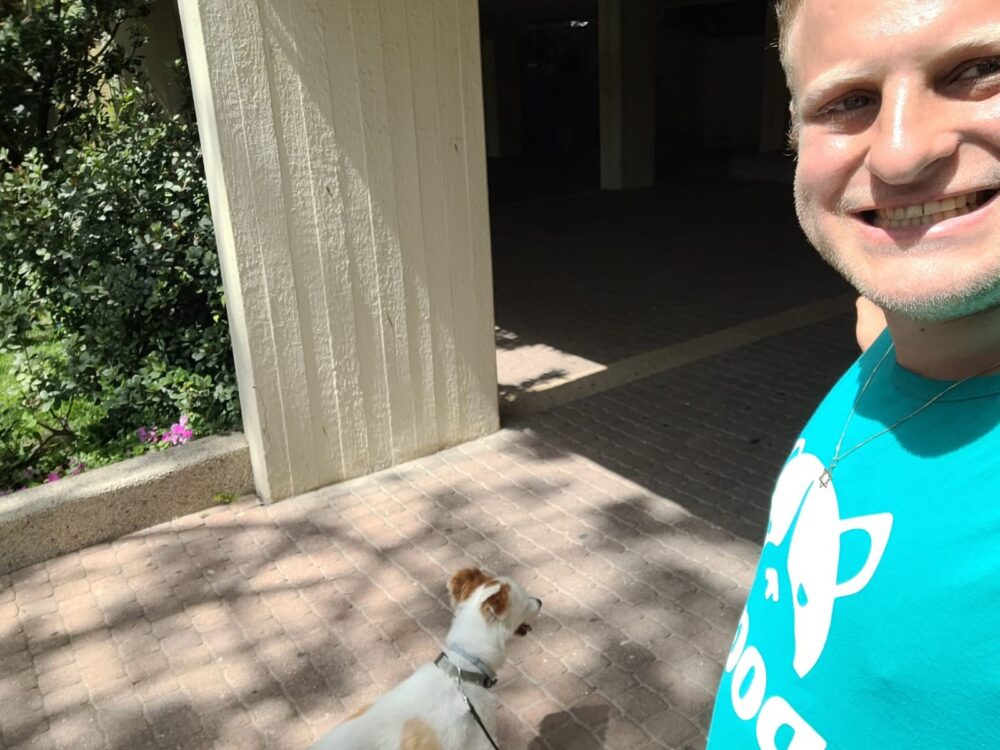
Now, Itzchaki spends three hours a day walking dogs professionally.
“I love the dogs so much and I enjoy walking them so much – except when it’s very hot outside,” he tells ISRAEL21c. “This job is very healthy for me because it helps me stay fit.”
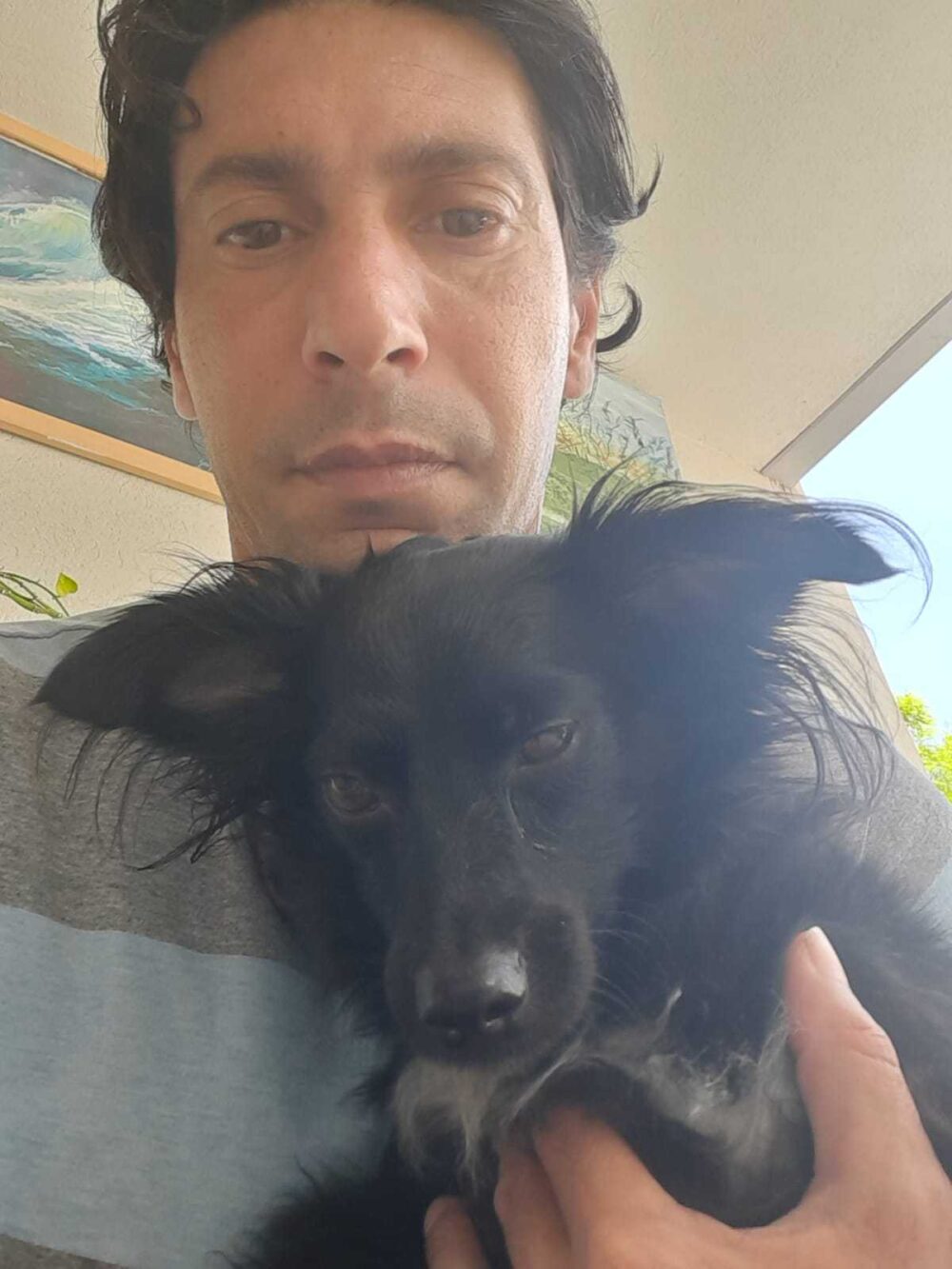
Dani Gindi, 42, also came to Walking Together after a series of unhappy job experiences. Although Gindi cannot read, he finds each address using the intuitive Dogiz app. He’s unusually industrious, handling eight walks per day.
Profit with purpose
Walking Together launched just before the Covid-19 pandemic, says Dogiz cofounder Danny Djanogly.
As ISRAEL21c reported in 2017, Dogiz originally offered a smartphone app connecting urban dog owners with local walkers, trainers, groomers, dog-sitters and vets, and provided those small businesses with management software. Eventually, Dogiz consolidated some of the businesses under its own brand.
The first Dogiz dog walker was Avrum Friedman, a young man on the autism spectrum. His father, Aviad Friedman, became chairman of Dogiz and raised the cofounders’ awareness of the employment challenges of people with disabilities.
“That morphed into the core of what Dogiz is all about,” says Djanogly.
“We always wanted to do some kind of ‘profit with purpose’ project, and this is an amazing way to do that.”
He and his cofounder, Alon Zlatkin, learned that adults on the autism spectrum are chronically underemployed, stuck in low-paying jobs beneath their capabilities, and often taken advantage of by their employers.
Furthermore, many people on the spectrum find it easier to connect with animals than with people. Interacting with animals has been shown to help them reduce stress and blood pressure, and even to improve their interpersonal skills.
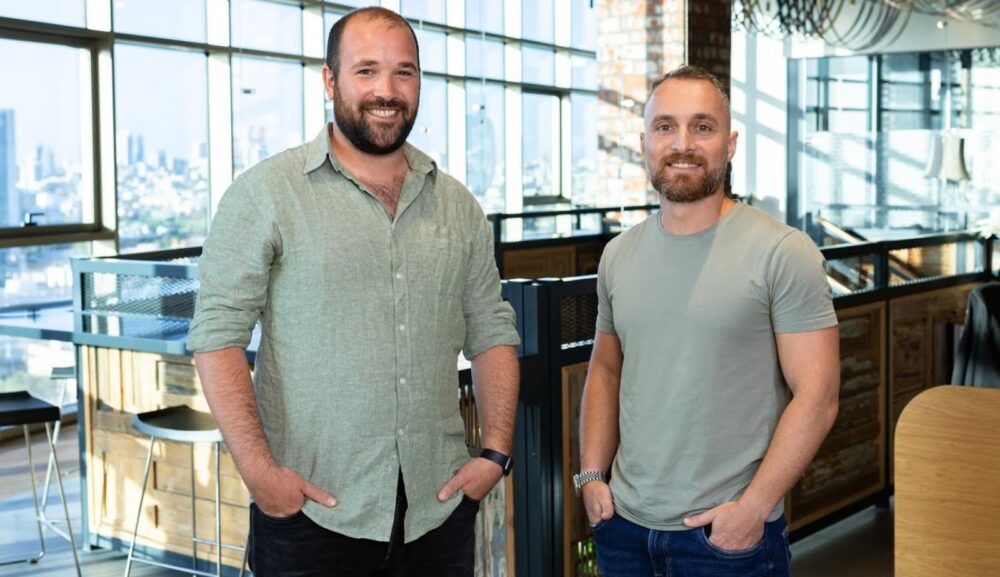
“We saw research on the mental and physical health benefits for people with autism working with dogs, and we knew it was a win-win-win idea to employ them as dog walkers,” says Djanogly.
“It’s about giving people the ability to work with dignity at a job that keeps them fit, active and financially independent. We were amazed at how effortlessly the synergy matched.”
Hard workers
Walking Together currently employs 15 dog walkers, representing 10 percent of its dog-walking staff. Collectively, they’ve logged over 5,000 bookings and earned some 100,000 shekels ($30,845) in income.
During the pandemic, when fewer dog owners needed walkers because they were at home, Walking Together clients continued booking “just to provide opportunity to these guys, who are some of our best staff members. They are hardworking and love what they do,” Djanogly tells ISRAEL21c.
Dogiz aims to increase the percentage of its walkers with disabilities to 20 by year’s end. Some future employees may come from Oketz, the canine unit of the IDF, which offers noncombat roles to soldiers on the autism spectrum. Dog walking may be a good option for employment after their military service.
“We want to be one of the largest employers of people with special needs in Israel,” Djanogly says.
Ongoing support
Dogiz hired a behavioral analyst/therapist to assess Walking Together job candidates’ physical and emotional capabilities.
“It’s in our best interest to take people who can do this job for the long term,” says Djanogly.
Each new Walking Together employee attends a month-long training session led by a dog trainer with experience in working with special-need populations. They learn how to use the Dogiz app and how to talk to clients.
“We quickly realized they need emotional support,” says Djanogly, so Dogiz provides that through monthly meetings with a counselor.
“We are partnered with wonderful organizations such as Shekel and Beit Ekstein, and with special-needs schools in Tel Aviv. They help us support our employees and provide them with more than just a workplace,” says Djanogly.
“We want them to gain life skills in general, which can be difficult to get after they age out of the educational system,” he adds. “Walking Together staff meet with us monthly to set goals and expectations, and they meet weekly with their counselors.”
Dogiz has invested in these services.
“There is a cost to us, so we have raised money to support this. But we believe this model isn’t just a ‘nice to have’ charity project on the side. It’s a robust business model.”
In June, Dogiz invited investors and families of Walking Together employees to an event where dog walkers, including Itzchaki and Gindi, shared their stories.
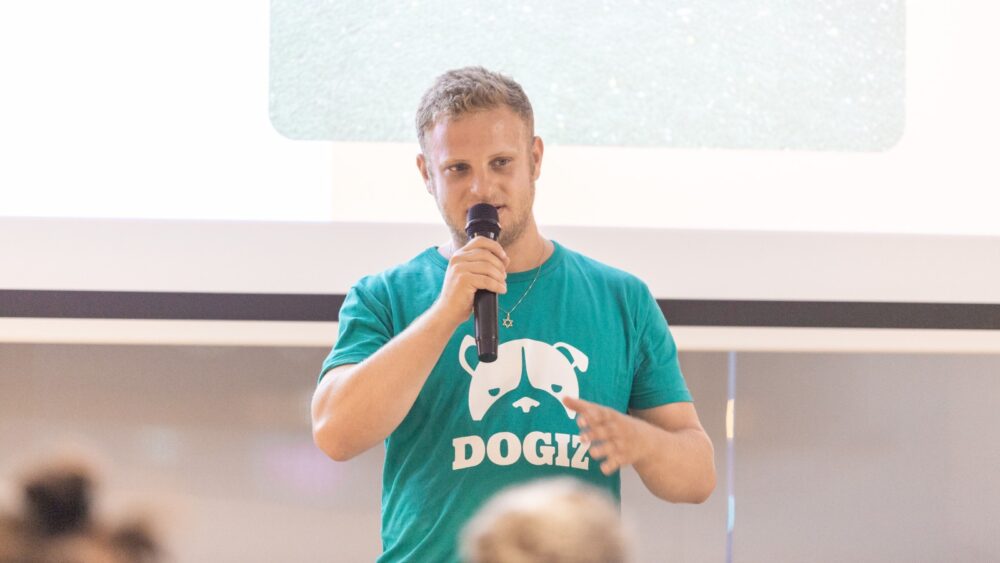
Djanogly and Zlatkin have become aware that every success on the job has a beneficial ripple effect for the whole family. “Dani Gindi’s sister said that now she can sleep well at night, knowing her brother has a good employment situation,” says Djanogly.
Dogiz, which has spread to central Israel and is now launching in Haifa, is developing a new digital health product to help people take better care of their dogs using crowdsourcing and AI.
“This will add more services and increase opportunities for people with special needs in our company,” Djanogly says.




